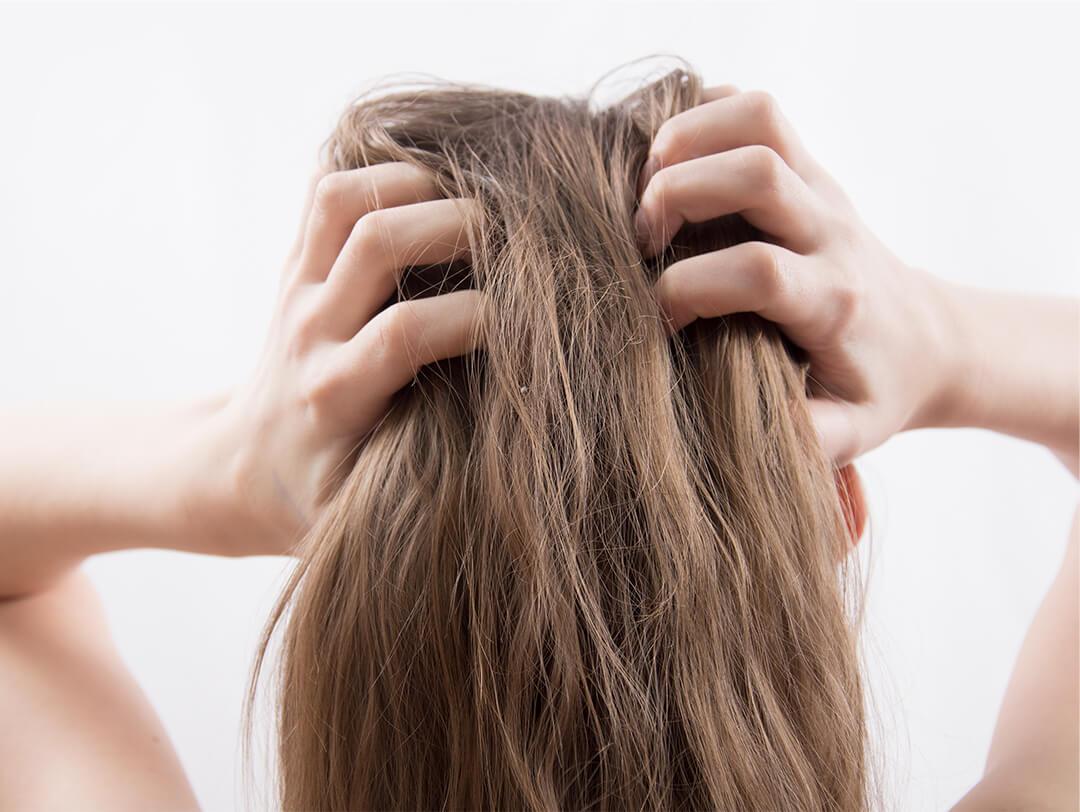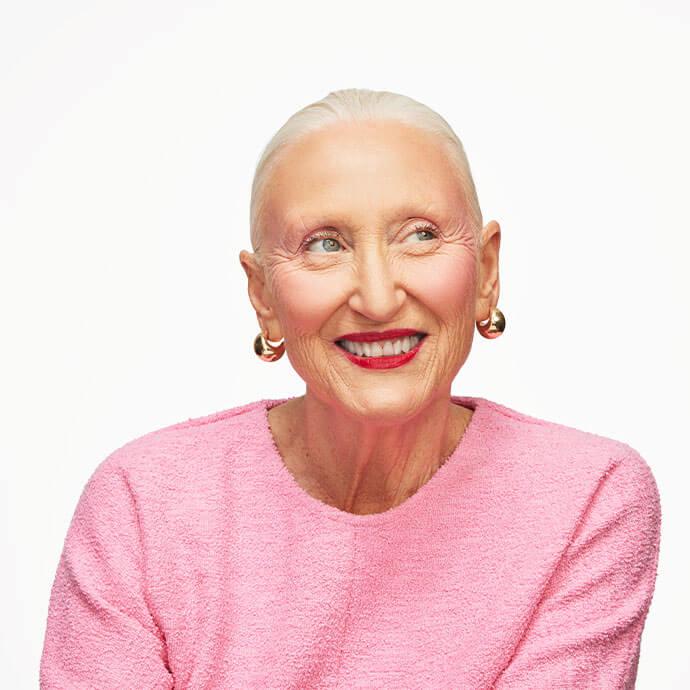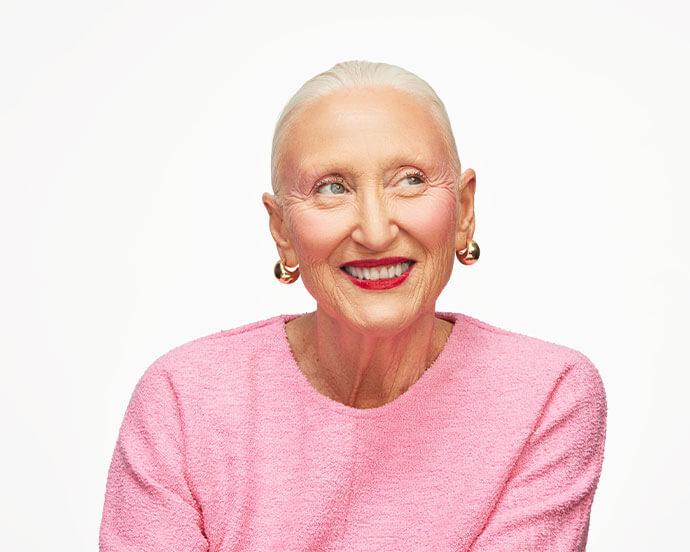Stop Scratching: 7 Derm-Approved Itchy Scalp Treatments That Actually Work



Katrina Mitzeliotis Lanza


While you may spend countless hours styling your hair, making salon appointments, and even treating your tresses to DIY home remedies, unfortunately the same can’t be said for the scalp, which is often overlooked in the hair care department—until, of course, you start feeling an uncomfortable itch come on. Once you feel an uncontrollable urge to itch, you’re automatically sent into high alert. Is it an infection? Head lice? Dandruff? An allergic reaction to hair dye? The possible causes could leave you scratching your head all day.
Not only is an itchy scalp uncomfortable, but if left untreated, it could start to impact hair growth. Healthy hair starts at the root, which means your scalp situation will have a direct impact on your hair. After all, a healthy scalp = healthy hair. “An unhealthy scalp, with itching, dryness, or flaking produces hair that is not in the best possible state,” says dermatologist Angela O. Kyei, MD, MPH, a brand ambassador for the Royal Oils Collection from Head & Shoulders.
Although it’s hidden behind your mane, it’s time to zero in on scalp care and treat your head to some TLC if you want to get to the root of the problem. We’ve rounded up the most common causes for an itchy scalp and a variety of solutions so you can resist the itch once and for all.


It's about glam time you treated yourself.
MEET THE EXPERT
Angela O. Kyei, MD, MPH, is a staff dermatologist at Cleveland Clinic and an Assistant Clinical Professor of Medicine at the Cleveland Clinic Lerner College of Medicine, specializing in hair loss.
Why is my head itching?
Sick of scratching your head? From skin conditions to climate changes, the reality is that an itchy scalp, (which is also known as scalp pruritus), could be caused by a variety of factors—although the most common cause of a dry scalp and itching is seborrheic dermatitis, a.k.a. dandruff. “Other common medical causes of itchy scalp include scalp psoriasis and atopic dermatitis,” says Dr. Kyei.
As we head into colder weather, the change in temperature can also be contributing to a scaly scalp, as a dry environment typically leads to dry skin and dry hair. “Itching is a common response to irritation and, in winter, a whole host of factors come together to irritate your scalp,” says Dr. Kyei.
How can you prep your hair to prevent the scratching sensation from coming on? Be sure to add more moisture into your hair care routine in the colder months to protect your hair from the weather change, especially before you pull on a beanie. “When you pull on your winter hat, you’re creating the perfect micro-climate for thousands of microbes on your scalp to thrive. It’s why the itchy scalp can seem much worse in the winter months,” says Dr. Kyei.
If you’re looking for scalp relief, you’ve come to the right place. We compiled a slew of home remedies and dandruff treatments to help you get to the root of the problem so you can finally stop scratching for good.
How to treat itchy scalp:
1. Exfoliate.
Exfoliating isn’t just for your face and body. The same way we exfoliate to keep pores clean and free of breakouts, we exfoliate our scalps to clear away product build-up, dead skin cells, and flakes. Not only could this build-up contribute to itchiness and inflammation, but it can also impact hair growth. Opt for a scalp scrub, like the OUAI HAIRCARE Scalp & Body Scrub, if you’re looking for relief and want to decrease product build-up, which can contribute to breakage and hair loss.
While exfoliating is an important step in keeping your scalp healthy, how you exfoliate is just as important. We know it’s possible to scrub too hard and cause damage when exfoliating your complexion, and the same goes for your scalp. “For any scalp product, it is important to get the product onto the scalp and gently massage the product on the scalp with the fingertips, not fingernails,” says Dr. Kyei. Scratching is a serious no-no. “This can cause hair breakage and further irritation on the scalp.”
2. Reach for apple cider vinegar.
You can DIY your own home remedy to treat dandruff and alleviate an itchy scalp with apple cider vinegar. The kitchen staple has antibacterial, anti-inflammatory, and antifungal properties, which means it can reduce itching caused by a dry scalp. Simply dilute a tablespoon of apple cider vinegar in warm water, and rinse your hair with the elixir after shampooing to alleviate flaking caused by dandruff and itchiness.
3. Opt for a shampoo specifically formulated to fight dandruff.
The most common cause of a flaky scalp and itchiness is dandruff, which “is primarily caused by microbial waste from a fungus on the scalp,” says Dr. Kyei. Other causes of dandruff include an oily scalp, however, the common problem is typically malassezia, a yeast-like fungus that you can combat with zinc pyrithione or salicylic acid.
Not only is the beta-hydroxy acid known as a skincare savior for acne, but it also works wonders on sensitive scalps as it gently exfoliates without causing further irritation. The AVEDA Scalp Remedy™ Dandruff Solution employs salicylic acid to keep your scalp free of fungus and flaking. If an anti-dandruff shampoo that you can get over-the-counter doesn’t help, it might be best to visit your dermatologist, who could prescribe you a medicated shampoo or lotion.
4. Stop using dry shampoo (sorry!).
While you may love the way a quick spritz can prolong your blowout, dry shampoo was never designed with scalp health in mind. In fact, using dry shampoo is the equivalent of sleeping in your makeup, and we all know that’s a major no-no if you want clear, youthful-looking skin.
“Dry shampoo is not intended to be used daily without washing with a shampoo and conditioner in between,” says Dr. Kyei.
If you do use dry shampoo on the regular and have lost count of the last wash day (hey, we’ve all been there), it can clog hair follicles and cause irritation, itchiness, and dryness. “When hair products, oils, and dirt accumulate on the scalp, the resulting build-up can break down into potentially irritating substances. The more you itch and scratch, the worse the irritation gets, so avoid the temptation,” says Dr. Kyei.
If this is a common problem, it might be time to switch up your shampoo and conditioner so you can get more out of your wash day. “When your hair and scalp are properly moisturized, you may find that you can use fewer products between washes, which will minimize build-up,” says Dr. Kyei, who recommends washing your hair at least once every three days. “If scalp concerns are heightened, shampooing daily can be beneficial to reduce the symptoms of itch, flaking, and dryness.”
5. Slather on coconut oil.
Looking for an easy home remedy you already have lying around that can soothe itchiness? You’re in luck. Coconut oil boasts a bevvy of benefits that go beyond the kitchen. Not only is it deeply hydrating, but it’s also rich in lauric acid, a saturated fat that delivers antimicrobial properties, which make it a skin-soothing treatment for an itchy scalp. Create a DIY hot oil treatment by warming coconut oil and massaging it into the scalp as a pre-shampoo treatment, or opt for a pre-made treatment that’s rich in coconut oil, like ST. TROPICA Beach Goddess Hot Oil Hair Mask, which nourishes tresses and works to hydrate and heal from within.
6. Moisturize.
Combat itchiness by infusing extra moisture into your hair routine come winter. From a creamy conditioner to a soothing hair mask, there are a variety of ways to ensure your hair gets the hydration it needs. Unsure where to start? Opt for a nourishing leave-in treatment, like FOXYBAE Flaminglow Leave In Conditioner, that will ensure your hair stays soft and smooth, even beneath a beanie.
7. Try tea tree oil.
This essential oil is known for its antimicrobial, antifungal, antiseptic, and anti-inflammatory benefits, making it a clarifying solution that can combat a flaky scalp and itchiness associated with dandruff, seborrheic dermatitis, or head lice. If you want to try tea tree oil in a home remedy, be sure to dilute it first before applying directly on the scalp or skin as it can cause irritation. Add 10 drops to your shampoo or dilute it with a carrier oil (like olive oil), and massage it onto your scalp. You can also opt for a product that already incorporates tea tree oil, like the BRIOGEO HAIR CARE Scalp Revival Charcoal + Tea Tree Scalp Treatment, which combines tea tree oil with charcoal and peppermint oil to detoxify and hydrate the scalp.
Banish scalp itch once and for all with these easy solutions that are bound to bring you relief and restore your hair, and scalp, to its original luster.
Want in on all the IPSY Glam Bag fun? Take our Beauty Quiz now to get started. Already an Ipster? Refer your friends to earn points, which you can use toward products. Either way, don’t forget to check us out on Instagram and Twitter @IPSY.
Liked this post? Share!
Related Stories


Skin
How to Adjust Your Skincare Routine for Mature Skin in the Winter
Published on Dec 4, 2025 • 7 min read


Skin
Meet the Best Moisturizers for Winter, According to Dermatologists
Published on Dec 1, 2025 • 9 min read


Skin
What Is Inflammaging—and Why Everyone’s Talking About It
Published on Dec 1, 2025 • 8 min read


Skin
6 Skincare Trends to Have on Your Radar in 2026, According to Experts
Published on Dec 1, 2025 • 7 min read


Skin
We Grabbed Our Crystal Ball and Found These 6 Skincare Predictions for 2025
Published on Dec 10, 2024 • 7 min read


Skin
Simple Self-Care Tips That Actually Make a Difference
Published on Nov 13, 2025 • 12 min read


Skin
These 9 Face Scrubs Will Unlock Soft and Smooth Skin on Contact
Published on Nov 5, 2025 • 10 min read


Skin
10 Thanksgiving Foods That Will Have Your Skin Coming Back for Seconds
Published on Oct 15, 2025 • 7 min read


Beauty Picked Just for You
Get 5 products worth up to $70
Plus exclusive access to epic deals up to 80% off
Starting at just $14/month. Cancel anytime.